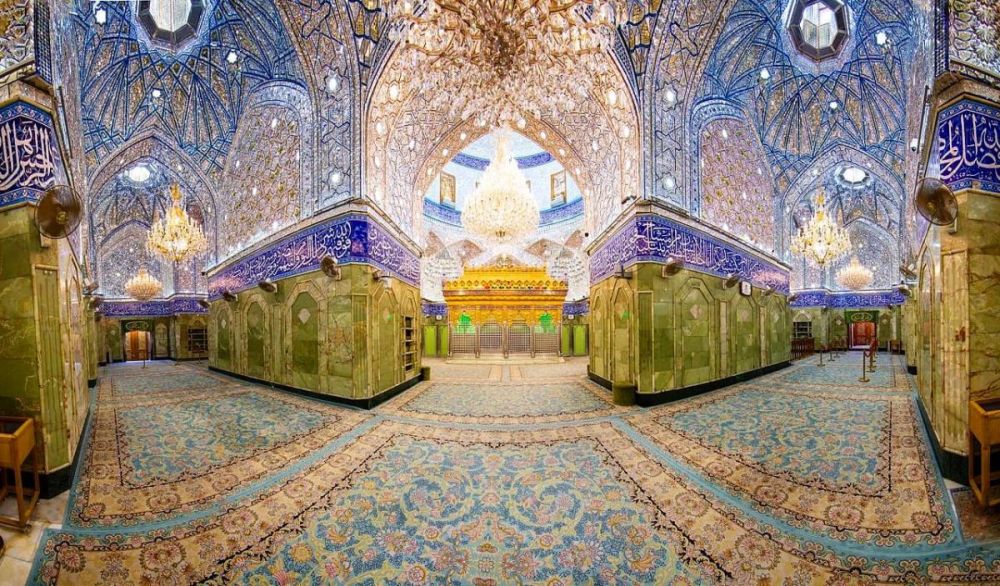

The Al Qibla Courtyard in Karbila, Iraq, is a site of immense spiritual significance for millions of Muslims around the world. It is part of the complex surrounding the final resting place of Imam Hussein ibn Ali, the grandson of the Prophet Muhammad. This location is a central point of pilgrimage, particularly for Shia Muslims, during the observance of Arba'een, which symbolizes the end of the 40-day mourning period following Ashura, the religious ritual that commemorates the martyrdom of Imam Hussein.
The history of tourism in Karbala is deeply intertwined with its religious and cultural significance. The city has been a destination for pilgrims since the martyrdom of Imam Hussein in the 7th century. However, modern tourism beyond the religious scope has been developing slowly due to the region's political and security situation.
In recent years, there has been a concerted effort to make the city more accessible to international tourists. Infrastructure has been improved, and hospitality options have expanded. Despite these advancements, most visitors continue to arrive with the primary purpose of religious pilgrimage, especially during the periods of Muharram and Safar, the first two months of the Islamic lunar calendar.
With the region stabilizing, religious tourism remains the mainstay, but there is a push towards diversification. Local authorities and international organizations are exploring ways to protect cultural heritage, promote religious tolerance, and open dialogue through educational tourism.
Visitors to the Al Qibla Courtyard are greeted by the ornate architecture, the passionate gatherings of believers, and the profound atmosphere of devotion. The courtyard itself serves as a place for prayer, reflection, and gathering. The experience for many is deeply emotional, connecting them to a history that is central to their faith.
Despite the religious significance, the region's tourism potential is not fully tapped due to challenges like visa restrictions and limited international knowledge about the possible secular touristic experiences in Karbala, such as its rich history beyond the scope of the battle of Karbala and the potential for cultural exchange.
Looking forward to the future of tourism in Karbala, there is a significant interest in developing sustainable tourism practices that respect the religious importance of the area while introducing visitors to the broader cultural and historical aspects of the city. Efforts to promote Karbala's history, architecture, and local crafts are underway, aiming to enrich the spiritual journey with educational elements and to contribute to the local and national economy.
Al Qibla Courtyard in Karbala remains a focal point for pilgrims, and as tourism trends evolve, there is optimism for a more varied visitor base. The hope is to see Karbala celebrated not only for its religious importance but also as a beacon for cultural and historical tourism in the heart of the Middle East.